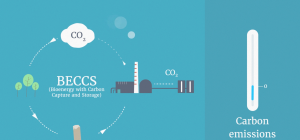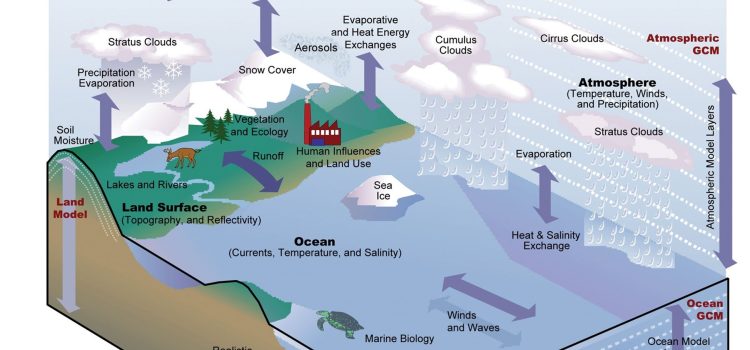
Climate change poses an existential threat to humanity, impacting our environment, health, and economies. Addressing this challenge requires a multifaceted approach, grounded in a deep understanding of the underlying science, and the deployment of various strategies from renewable energy integration to international collaboration. As a professional deeply immersed in the study and advocacy for solutions to climate change, I have come to recognize the critical components necessary for an effective response to this global crisis.
Understanding the Science of Climate Change

Understanding the science of climate change guides effective solution development. It is imperative that we grasp the complexities of how greenhouse gases trap heat in the atmosphere, leading to global warming and a cascade of environmental impacts. This understanding enables us to identify the most effective levers for mitigation and adaptation. Effective climate change solutions require a deep understanding of its science, as it lays the foundation for all subsequent actions. By comprehensively understanding the mechanisms through which human activities contribute to climate change, we can tailor our strategies to be both effective and efficient in curbing its impacts.
Renewable Energy Integration
Renewable energy integration is pivotal for combating climate change effectively. The transition from fossil fuels to renewable sources of energy, such as solar, wind, and hydro, is critical in reducing the carbon footprint of our global energy systems. Climate change mitigation requires accelerating renewable energy adoption globally, a task that necessitates both technological innovation and policy support. By investing in renewable energy, we not only reduce greenhouse gas emissions but also promote sustainable economic growth and energy security.
Enhancing Energy Efficiency
Enhancing energy efficiency is crucial for mitigating climate change impacts. By improving the efficiency of buildings, transportation, and industries, we can significantly reduce energy consumption and thus decrease the emission of greenhouse gases. Energy efficiency represents a cost-effective solution for climate change challenges, offering substantial returns on investment through reduced energy costs and environmental benefits. It is an area where policy, technology, and consumer behavior converge to create impactful results.
Forest Conservation and Reforestation Efforts
Forest conservation is crucial for mitigating climate change impacts effectively. Forests act as carbon sinks, absorbing CO2 from the atmosphere, and play a vital role in regulating the global climate. Reforestation efforts are vital in reversing climate change consequences globally, restoring degraded lands, and enhancing biodiversity. These efforts not only contribute to carbon sequestration but also provide livelihoods, preserve water resources, and protect ecosystems against the impacts of climate change.
Innovative Carbon Capture Technologies

Innovative carbon capture technologies are critical for mitigating climate change effects. These technologies, which capture CO2 emissions from industrial processes and power generation, are essential in the transition towards a low-carbon economy. Carbon capture solutions are a cornerstone in effective climate change strategies, allowing us to address emissions from the hardest-to-decarbonize sectors. Their development and deployment are crucial for achieving global climate targets.
Promoting Sustainable Agriculture Practices
Implementing crop rotation mitigates climate change by enhancing soil health, leading to increased carbon sequestration and reduced need for chemical fertilizers. Adopting agroforestry practices reduces the carbon footprint, combating climate change effectively by integrating trees into agricultural landscapes. These practices not only contribute to reducing greenhouse gas emissions but also improve food security, biodiversity, and resilience to climate impacts.
International Collaboration on Climate Policies
International collaboration enhances the effectiveness of climate change mitigation strategies. Climate change is a global issue that requires coordinated action across borders. Unified global policies ensure equitable solutions to climate change challenges, facilitating the sharing of technology, financial resources, and best practices. By working together, countries can achieve more significant impacts than any could alone, aligning their efforts with the goals of international agreements such as the Paris Agreement.
Public Awareness and Education Campaigns
Raising awareness on climate change mitigates its long-term impacts. Public understanding and engagement are crucial for driving the societal and behavioral changes necessary to address climate change. Educational campaigns on climate change foster proactive societal adaptations, encouraging individuals and communities to adopt more sustainable lifestyles and support climate-friendly policies. By increasing public awareness and education, we empower citizens to take part in the global effort against climate change, making it a collective endeavor.
Conclusion
In conclusion, the battle against climate change is multifaceted, requiring a deep understanding of its underlying science and the implementation of a broad range of strategies. From integrating renewable energy and enhancing energy efficiency to promoting sustainable agriculture and fostering international collaboration, each component plays a critical role in crafting an effective response to this global challenge. Additionally, public awareness and education are fundamental in ensuring the long-term success of these efforts. As we move forward, it is imperative that we continue to innovate, collaborate, and educate, harnessing the collective power of humanity to secure a sustainable future for all.










